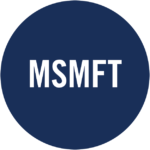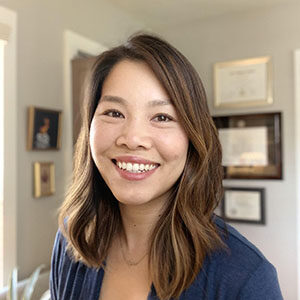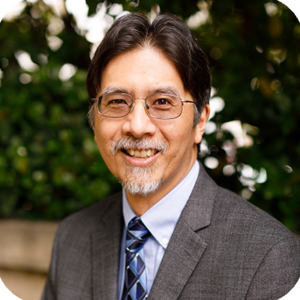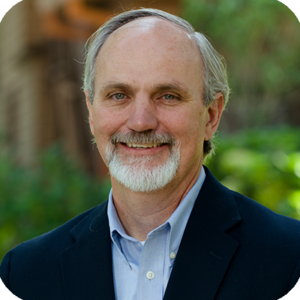Master of Science in Marriage and Family Therapy
School of Psychology & Marriage and Family Therapy
If you want to integrate your Christian faith with bringing healing and wholeness to individuals, couples, and families in their relationships, explore Fuller’s Master of Science in Marriage and Family Therapy (MSMFT) program—offered at both our Pasadena and Arizona campuses. In a supportive community of faculty and fellow students, you’ll be formed to serve as a skilled therapist, with your Christian faith informing your clinical work. Both programs meet the academic requirements of their respective states and provide excellent training and networking opportunities that will support your career beyond graduation.
Clinical Training
Spiritual Formation
2- and 3-year Programs
Pasadena and Phoenix Campuses
Study with faculty like these:
Associate Professor of Marriage and Family Therapy
Professor of Marriage and Family Studies
Evelyn and Frank Freed Professor of Marriage and Family Therapy
Explore other members of our renowned School of Psychology & Marriage and Family Therapy faculty here.
Request More Information About the MS in Marriage and Family Therapy
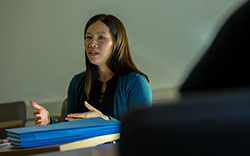
Admissions
Admissions Requirements
To be considered for the MSMFT program in either Pasadena or Phoenix, applicants must submit an online application, essay responses, four letters of recommendation, and official transcripts reflecting completed coursework for a bachelor's degree.
Tuition and Affordability
The full tuition for Fuller’s MSMFT degree is the same for both Pasadena and Arizona. For Pasadena students who choose additional coursework to fulfill out-of-state requirements or requirements for the Professional Clinical Counselor license (LPCC), and for Arizona students who choose to pursue the Professional Counselor license (LPC), additional tuition will apply. Incoming students are eligible for new student scholarships and Pasadena students will be considered for the merit-based Vermeer Scholarship. Continuing students are eligible for a number of additional scholarships.
Arizona-based scholarships are also available for Arizona students. Arizona students who complete the scholarship application will automatically be considered for need-based scholarships available through the Empowering Leaders Fund and the Carol Eaton Scholarship.
Vermeer Scholarship Application Requirements
- 3.0 GPA or above
- Applicant must submit the fifth essay with their admission application, answering the following prompt: In applying to Fuller’s Marriage and Family Therapy program do you have a vision, tentative or otherwise, for how your training might serve the social and/or relational needs of an organization (including, but not limited to, local congregations)? In what ways, apart from providing psychotherapeutic services, do you anticipate using your skills in some form of organizational intervention, or marriage or family oriented ministry? How important is this to you?"
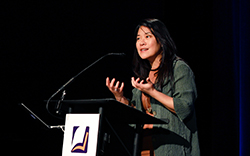
Training Opportunities
Faculty are closely involved in students’ clinical training, offering weekly clinical supervision or consultation. All students have access to a broad range of practicum options through our dozens of site connections. Whatever your passion, you’ll find a placement to help equip you for your career.
Through faculty-led practicums––a program unique to Fuller––select students at the Pasadena campus receive direct supervision from licensed faculty members, each with a focus on a specific model of therapy.
Students work directly with licensed faculty members and seasoned licensed therapists in the Phoenix area who are committed to training students and creating lasting networks for alumni.
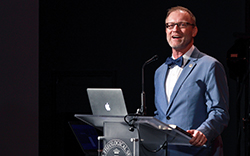
Accreditation and Professional Preparation
Fuller's MSMFT program provides students with the professional training and clinical skills necessary for licensure as a marriage and family therapist in California and Arizona, and as an LPCC (licensed professional clinical counselor) in California, and LPC (licensed professional counselor) in Arizona. Furthermore, our program prepares students who wish to pursue doctoral studies in marriage and family therapy. The program offers students unique opportunities, such as training directly with skilled faculty clinicians such as Terry Hargrave, who developed the Restoration Therapy model, or focusing on the clinical specialization of Medical Family Therapy (MedFT), in which students learn to work with families affected by illness and to provide family therapy in medical contexts.
In Pasadena, Fuller’s MSMFT curriculum meets the academic requirements of Section 4980.36 or 4980.37, and Section 4999.33 of the State of California Business and Professions Code. Our department is recognized by the California Board of Behavioral Sciences (BBS) as meeting the standards and educational requirements for licensure as a marriage and family therapist in California.
The Fuller Arizona curriculum meets the requirements of Title 4, Chapter 6, Section R4-6-601 (for the LMFT) and R4-6-501 (for the LPC) of the Arizona Administrative Code and of Arizona Revised Statutes Title 32, Chapter 33. Our program has been pre-approved by the AZ Board of Behavioral Health Examiners for licensure in Arizona.

"In the faculty-led practicum, I sat with a master therapist, Terry Hargrave. He supervised me doing live therapy and provided input in real time. What an amazing learning experience! I didn’t come to Fuller a natural therapist; I just had the desire. Now, because of Fuller’s incredible training, I feel very confident in the therapy I do."
– Lance Ahl, MSMFT ’12, MDiv ’06

A Supportive Community
In both Pasadena and Phoenix, students take most core courses with the same cohort, allowing students to build professional and personal relationships that last beyond the program. Faculty at both campuses value the mentoring opportunities that occur in small group training contexts, formation groups, community meetings, and spiritual formation retreats, where they encourage lively classroom dialogue and invest in students’ personal and spiritual growth. These groups and meetings explore issues of vocation, identity, and a deeper understanding of what it means to be agents of healing and reconciliation in the world.
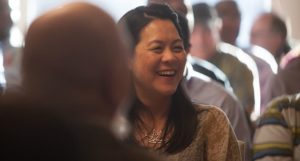
A Focus on Faculty Mentoring
Established in the 1980s, Fuller’s MFT program is considered one of the strongest MFT programs in California. Graduates from both the California and Arizona programs have excellent first-time pass rates in their respective state licensing exams. Two primary factors contribute to the program’s success: 1) faculty involvement and 2) spiritual formation.
Faculty Involvement
During every quarter of the 2-year program and in the third year of the 3-year program, faculty engage students in small group contexts (see table below), allowing faculty the opportunity to mentor students and meaningfully come alongside them in their journey of personal and professional development.
Small Group Format Schedule
| YEAR/TERM: Pasadena 2-Year Program | Small Group Course |
| Year 1/Quarter 1 | Formation Group |
| Year 1/Quarter 2 | Formation Group |
| Year 1/Quarter 3 | Formation Retreat and Clinical Foundations 3 |
| Year 2/Quarter 1 | Supervision/Consultation |
| Year 2/Quarter 2 | Supervision/Consultation |
| Year 2/Quarter 3 | Formation Retreat and Supervision/Consultation |
| YEAR/TERM: Pasadena 3-Year Program | Small Group Course |
| Year 3/Quarter 1 | Formation Group and Supervision/Consultation |
| Year 3/Quarter 2 | Formation Group and Supervision/Consultation |
| Year 3/Quarter 3 | Formation Retreat and Supervision/Consultation |
| YEAR/TERM: Phoenix 2- and 3-Year Programs | |
| Year 1/Quarters 1-2 | Formation Group |
| Years 2 & 3/Quarter 3 | Formation Retreat |
| Year 2 or 3/Quarters 1-4 | Supervision Group |
In addition to the small group learning context, students each train with a faculty member under live supervision during the practicum year. Students learn to conceptualize and apply clinical interventions based on a specific theory and therapeutic model, resulting in a high level of clinical expertise.
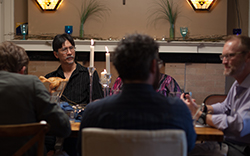
Spiritual Formation
At the heart of the MFT program is our spiritual formation curriculum in which peacemaking is the center of our vocational identity and where humility, hope, compassion, and Sabbath rest are the clinical virtues that strengthen this identity. This informs all aspects of the clinical training curriculum as well as the department’s community life. We are forming therapists who are empowered to do God’s work as peacemakers, committed to restoring shalom in the lives of their clients. But the journey begins with students engaging in their own formational process, which we facilitate in the following ways:
Introduction to Integration
In this class, students are introduced to the spiritual formation framework and engage in classroom discussions about peacemaking and the clinical virtues.
Formation Groups
Faculty members each meet with a group of 8-10 students weekly for the first two quarters in the program, providing mentorship and facilitating group discussions. The first quarter focuses on sharing personal narratives and deepening relationships within the group. During the second quarter, students discuss the clinical virtues in greater depth.
Community Meetings
This is a time when the entire department gathers to listen to and engage with faculty members as they share personal reflections on each of the clinical virtues.
Spiritual Formation Retreat
One of our clinical virtues is Sabbath rest, and we take seriously the commitment to practice what we teach. One day every Spring Quarter, the entire department gathers at an off-campus site for personal and communal retreat. We start the day in worship, then transition to times of individual and group reflection.

2-year and 3-year Programs
We understand that students come with a variety of resources, expectations, and needs as they pursue graduate education and navigate the balance between life in and outside of school. Therefore, students can choose to complete the program in two years or three years. They take classes with the same faculty members, complete the same curriculum, and have the same training opportunities, only at different paces.
Applicants to the Fall quarter may apply to pursue the MSMFT as part of either the two year program* or the three year program.
Applicants to the Spring quarter will be considered for “early start” admission to the MSMFT program and must select either the two year program or the three year program to begin in the following Fall quarter.**
2-Year Program (Pasadena and Phoenix)
- 7 quarters of full-time enrollment (on-campus and online courses)
- Practicum begins at the end of the Year 1 or beginning of Year 2
Click here for a detailed, year-by-year curriculum.
3-Year Program (Pasadena)
- First 2 years, part-time enrollment
- Online courses
- On-campus courses 1 evening a week
- Third year, full-time enrollment
- 20 hrs/week practicum
- Remaining on-campus courses
*8-12 units per quarter
Click here for a detailed, year-by-year curriculum.
3-Year Program (Phoenix)
- First 2 years, part-time enrollment
- Online courses
- On-campus courses 1 day a week
- Third year, full-time enrollment
- 20 hrs/week practicum
- Remaining on-campus courses
Click here for a detailed, year-by-year curriculum.
* International applicants needing a U.S. student visa may only apply to the Pasadena Campus Fall Quarter two year program.
** Please be aware that the 2-year and 3-year options refer to the different course structures of the MSMFT program and are not necessarily exact estimates for degree completion time. Please consult your admissions counselor to determine the specific timelines associated with your preferred plans of study.

Upcoming Events
Integration Symposium
Fuller's annual Integration Symposium brings in the top scholars from around the world to interact with the Fuller academic community.
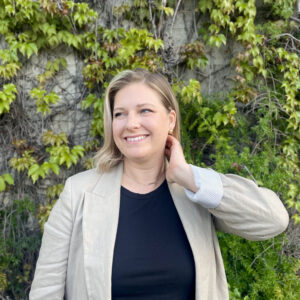
get to know your admissions counselor | Liz Yoshonis
My family and I came to Fuller in 2019 from Michigan so that my husband could pursue his MDIV. Throughout those years, I fell in love with Fuller; the multicultural experience of just living in Fuller Housing, and felt personally drawn toward the School of Psychology. In 2022 I applied and was accepted into the Marriage and Family Therapy Program where I am currently a student. The program has been personally life-changing. Since my studies began, I have become a better wife, mother, and friend. The faculty is rich with knowledge and care as they excellently prepare us for future clinical work as well as beautifully integrate theology and psychology throughout the program. Now, as an admissions counselor, I have the unique opportunity to assist individuals in the process of applying to SOPMFT programs as well. It is a profound honor for me to be able to walk alongside individuals as they navigate the possibilities of how Fuller can be the catalyst for what God has created them for and ultimately affect positive change for the world.
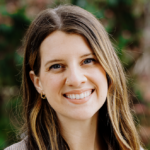
Contact
Chat with a Welcome Center and Student Service Team representative
Office Hours
Monday – Friday
8 am – 5 pm (Pacific Time)
To view in-person welcome center hours for Pasadena, Arizona and Houston, click here.

